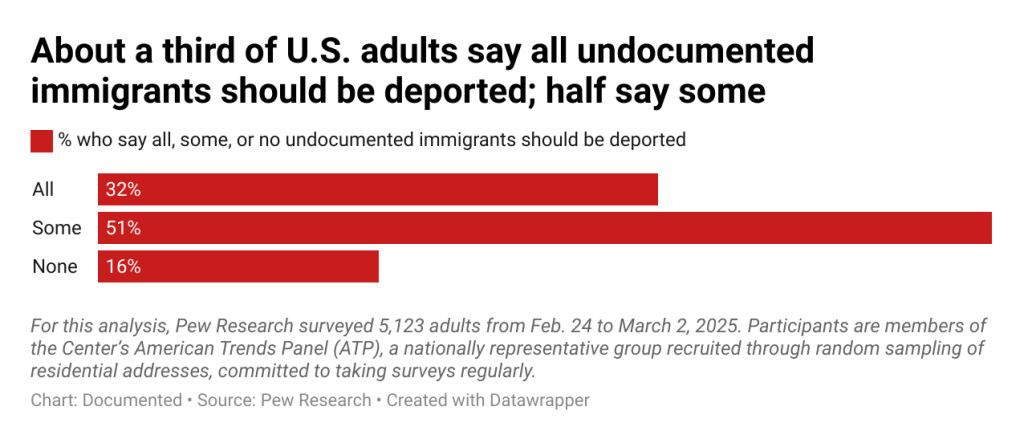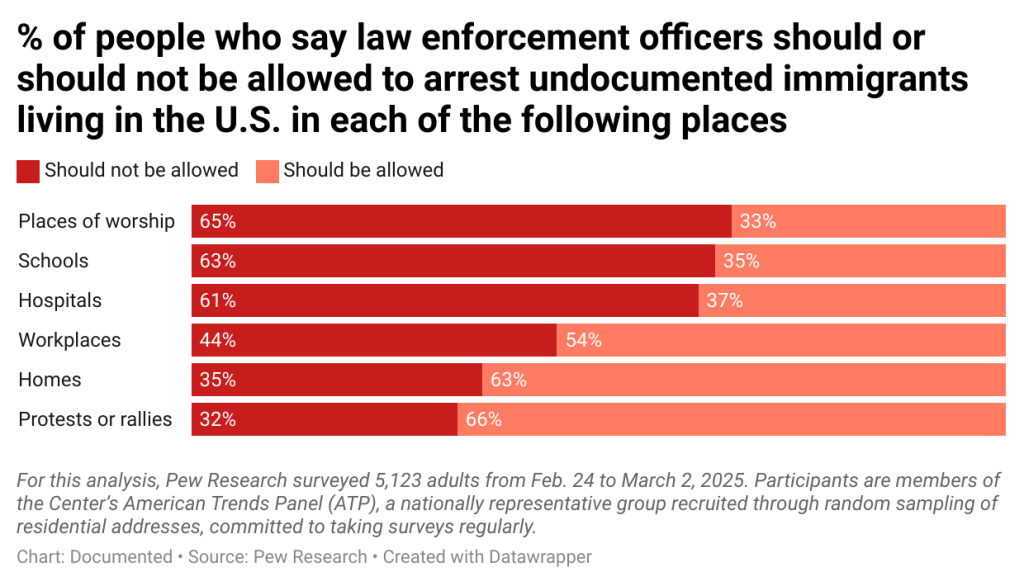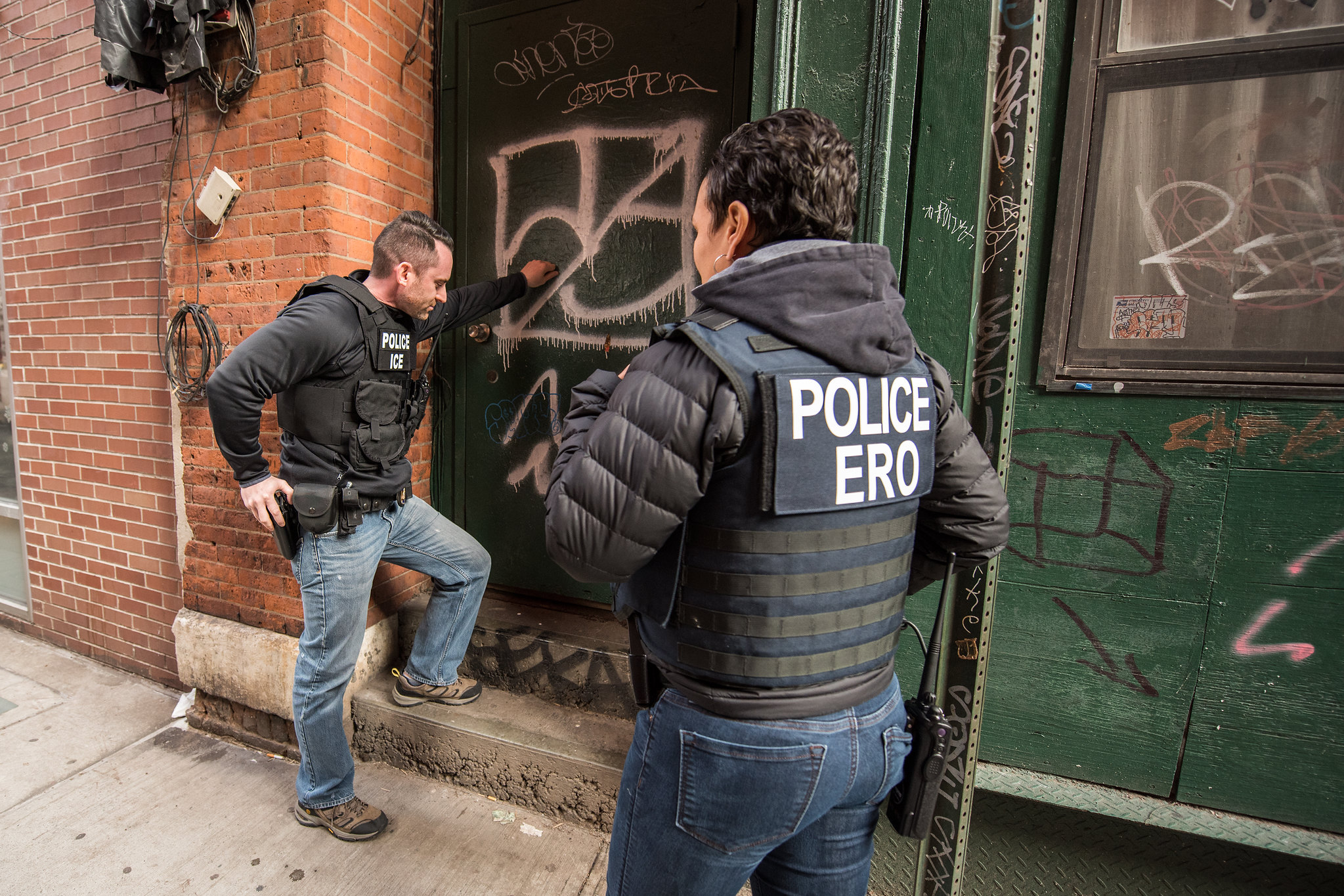The Trump administration’s immigration enforcement continues to escalate, with Tuesday’s arrests of immigrants Rumeysa Ozturk and Robert Panton.
Ozturk, a Turkish doctoral student at Tufts University, was abruptly detained by immigration authorities despite no formal charges against her.
“I don’t understand why it took the government nearly 24 hours to let me know her whereabouts,” her lawyer, Mahsa Khanbabai, said. “Why she was transferred to Louisiana despite the court’s order is beyond me.”
Ozturk had voiced support for the pro-Palestine movement at Tufts, but was not a leading figure in it, The Boston Globe reported.
Meanwhile, Harlem resident Robert Panton, a 59-year-old grandfather who has lived in the U.S. for over 50 years, now faces deportation to Jamaica over a decades-old criminal conviction on drugs, despite his deep community ties and ongoing medical concerns for chronic pain. He spent 30 years in prison for a single drug conviction during the peak of the U.S. government’s “War on Drugs,” which disproportionately affected Black men. In August 2020, a federal judge released Panton from prison. Under current reforms, the same conviction would now carry a sentence of approximately six years, according to the National Immigrant Justice Center.
These cases, emblematic of broader immigration enforcement trends, have fueled public outrage and renewed scrutiny over who is being targeted for removal.
Against this backdrop, the Pew Research Center has released a new survey, conducted from Feb. 24 to March 2, that sheds light on how Americans view deportation policies. The findings reveal a public deeply divided on the issue. While some advocate for strict removals, others support a more selective approach, particularly for those with strong family or community connections. In other words, a public that is neither entirely hardline nor wholly lenient on deportation.
The survey also highlights nuanced perspectives on who should be subject to deportation and the acceptable contexts for immigration enforcement. Some weigh security concerns against humanitarian considerations, and a significant portion of those surveyed support selective enforcement rather than blanket removals.

The survey found that 32% of U.S. adults believe all undocumented immigrants should be deported, while 16% oppose deportations altogether. However, a majority — 51% — support deporting only certain groups of undocumented immigrants, suggesting a more conditional approach to immigration enforcement.
Among those who favor selective deportations, nearly all — 97% — agree that individuals who have committed violent crimes should be removed from the country. However, support declines when it comes to nonviolent offenses, with just over half — 52% — backing deportation in such cases.
The timing of an immigrant’s arrival also factors into public opinion, as 44% believe those who entered within the past four years should be deported. However, there is far less support for removing undocumented immigrants with established family ties in the U.S., with only 20% in favor.
The survey also examines public sentiment on where immigration enforcement should take place. While many Americans support allowing arrests at protests and in private homes, a majority oppose detaining undocumented individuals in sensitive locations such as places of worship and schools.

The findings underscore the complexity of public opinion on immigration enforcement, revealing that people prefer a balance between security concerns and considerations of humanitarian and familial factors. As the national debate on immigration policy continues, these perspectives could play a crucial role in shaping future policies.
The survey also notes significant differences in how Republicans and Democrats view immigration policies and enforcement. A majority of Republicans (54%) and Republican-leaning independents support deporting all undocumented immigrants, while only 10% of Democrats agree. On immigration enforcement, 81% of Republicans back law enforcement checking immigration status during routine activities like traffic stops, compared to 33% of Democrats. Meanwhile, 75% of Democrats believe the Trump administration is overly aggressive in deportations, a view shared by just 13% of Republicans.
The survey includes inputs from over 5,000 people who responded between Feb. 24 to March 2, 2025. The participants are members of the Center’s American Trends Panel (ATP), a nationally representative group recruited through random sampling of residential addresses who are committed to taking surveys regularly.















